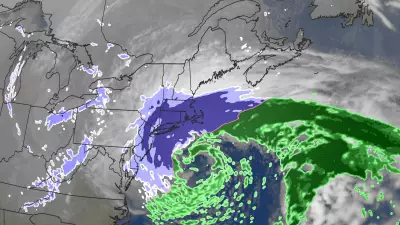
Environmental organizations and climate advocates are intensifying pressure on the Quebec government to adopt more ambitious climate targets and implement carbon budgeting systems. The calls come as the province faces growing scrutiny over its ability to meet existing environmental commitments.
Growing Pressure for Climate Action
The movement for stronger climate measures in Quebec has gained significant momentum in recent months. Multiple environmental groups have presented detailed proposals urging the provincial government to establish more rigorous emissions reduction timelines and create comprehensive carbon budgets that would cap total greenhouse gas emissions.
Advocates argue that Quebec's current climate plan, while progressive compared to some jurisdictions, falls short of what scientific consensus deems necessary to combat the escalating climate crisis. The proposed carbon budgeting system would function similarly to financial budgeting, setting strict limits on total emissions allowed within specific timeframes.
The Science Behind Carbon Budgets
Carbon budgeting represents a scientific approach to emissions management that has gained international recognition. This method involves calculating the maximum amount of carbon dioxide and other greenhouse gases that can be emitted while still maintaining a reasonable chance of staying within critical temperature thresholds.
Environmental experts emphasize that carbon budgets provide clearer accountability and more transparent tracking of progress toward climate goals. Unlike traditional target-setting, carbon budgets prevent the banking of emissions reductions from one period to offset future overages, ensuring consistent year-over-year progress.
The system has been successfully implemented in several European countries and is increasingly seen as a gold standard for credible climate policy. Quebec's adoption of such a framework would position the province as a North American leader in evidence-based climate governance.
Economic and Environmental Implications
Proponents of strengthened climate measures highlight the dual benefits of environmental protection and economic opportunity. The transition to a low-carbon economy presents significant potential for job creation in renewable energy, energy efficiency, and clean technology sectors.
Quebec's abundant hydroelectric resources provide a distinct advantage in this transition, offering clean power for electrifying transportation and heating systems. However, advocates stress that maximizing these benefits requires clear policy signals and consistent regulatory frameworks that only robust climate targets can provide.
Business leaders increasingly recognize the economic risks of climate inaction, including supply chain disruptions, infrastructure damage from extreme weather events, and market shifts toward sustainable products and services. The implementation of carbon budgets would provide the predictability that businesses need to make long-term investments in decarbonization.
As the November 2025 discussions continue, all eyes remain on Quebec's legislative assembly to see how the province will respond to these urgent calls for climate leadership. The decisions made in the coming months could significantly influence Quebec's environmental and economic trajectory for decades to come.






